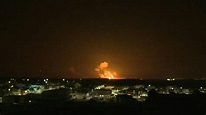Featured
article
- Get link
- X
- Other Apps
Shifting Sands: Global Push for Palestinian Statehood Highlights Israel’s Diplomatic Isolation

As international momentum builds toward recognizing Palestinian statehood, Israel finds itself increasingly isolated on the global stage. A growing number of countries and international bodies are signaling support for Palestinian sovereignty, reflecting frustration with the stagnation of peace talks and the ongoing conflict in Gaza and the West Bank.
Recently, nations such as Spain, Ireland, and Norway have formally recognized Palestine as a state, joining over 140 UN member countries that already do so. These moves are not merely symbolic—they represent a broader shift in diplomatic attitudes, especially within Europe, where public opinion and political pressure are pushing governments to take a firmer stance on the Israeli-Palestinian conflict.
Israel’s response has been swift and critical, recalling ambassadors and issuing strong condemnations. However, such reactions may underscore its growing diplomatic isolation. Traditional allies like the United States continue to support Israel, but even Washington has expressed concern over settlement expansion and the humanitarian crisis in Gaza.
The push for Palestinian recognition is also a reflection of global impatience with the status quo. Decades of failed negotiations and escalating violence have led many to believe that a two-state solution requires more assertive international action. Recognizing Palestinian statehood is seen by some as a necessary step toward justice and long-term peace.
As the geopolitical landscape shifts, Israel faces a critical juncture: adapt to changing global norms or risk further alienation. The movement for Palestinian statehood is no longer a fringe campaign—it’s becoming a mainstream diplomatic cause.
Popular Posts
Trump's Six Words: "I'm Going to Stop the Wars"
- Get link
- X
- Other Apps
Midnight Blast Shakes Gaza Skyline Amid Rising Tensions
- Get link
- X
- Other Apps



Comments
Post a Comment